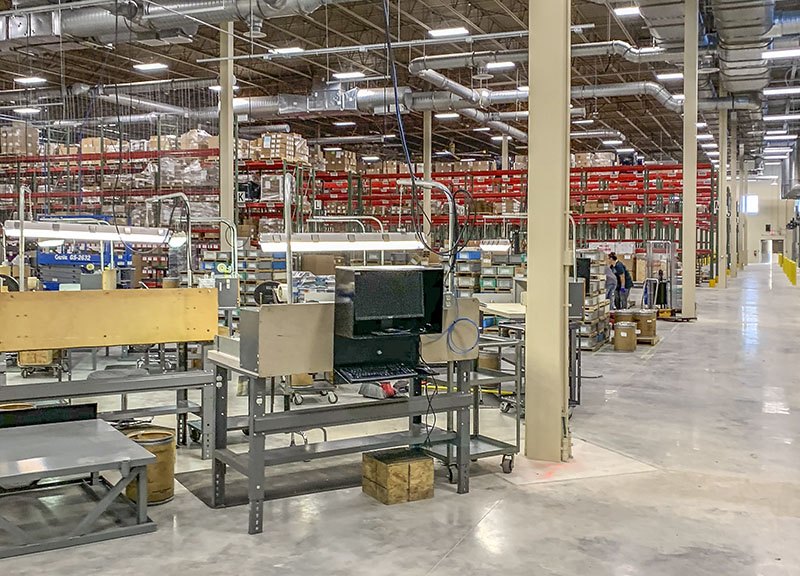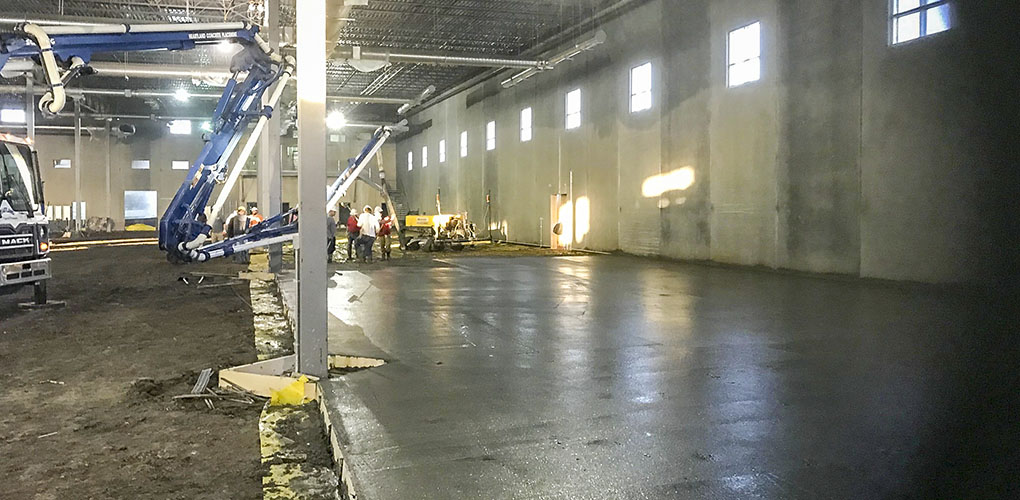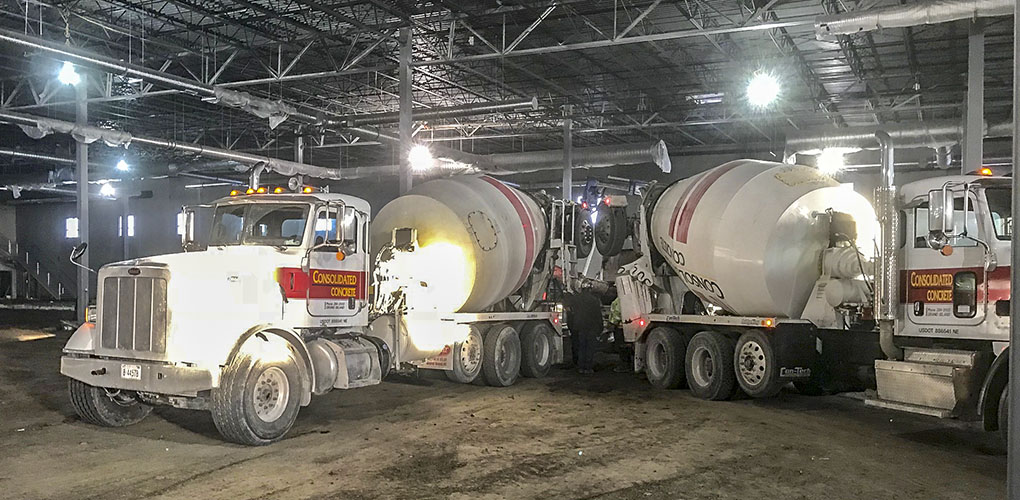The Lacy Construction team recently completed a new, 150,000-square-foot distribution center and powder blending facility for Hornady Manufacturing Company in Alda, Nebraska. Hornady Manufacturing is one of the largest independent producers of ammunition in the world, having designed and manufactured premium ammunition since 1949. Headquartered in Grand Island, Nebraska, the company also manufactures components for ammunition, reloading equipment, and reloading dies. In 2017, Hornady was named Ammunition Manufacturer of the Year for the seventh time by the National Association of Sporting Goods Wholesalers.
Known as Hornady West, the new, $16 million facilities was constructed using precast concrete wall panels, diamond polished concrete floors, and cementitious and intumescent mastic fireproofing. Cementitious coatings are lightweight and highly heat resistant, and mastic intumescent coatings swell when engulfed in flames, which slows heating of the steel. The facility includes a shooting range to test ammunition on-site as well as a new cafeteria and open office space. It is outfitted with an acoustic wall and ceiling system. The building is also equipped with an elevator, pre-manufactured metal canopies and sunshades, loading dock levelers, seals and truck restraints, a pneumatic tube system, and office space controlled with variable air volume (VAV) units. VAV systems provide precise, reliable temperature control and use less energy than other units.

In addition to manufacturing and testing ammunition, Hornady recognizes the need for firearm safety and storage.
Hornady Manufacturing has been a leader in the industry with its Hornady Security® RAPiD® Safes, which keep firearms safely stored in portable devices that can be unlocked with a wristband or smartphone. They are also involved with Project ChildSafe®, a non-profit charitable organization committed to promoting firearms safety. Project ChildSafe has partnered with law enforcement agencies to distribute more than 36 million firearms safety kits to gun owners throughout the United States. Hornady hopes to raise awareness about the safe and responsible ownership of firearms and the importance of securely storing firearms to help reduce accidents and access by unauthorized individuals.

The building’s large concrete footprint proved challenging, as creating a smooth, level surface was paramount. Screeding a 150,000-square-foot concrete floor can be a daunting task, but our team was aided by our state-of-the-art Ligchine ScreedSaver MAX. Screeding is the process of scraping off excess wet concrete to create a smooth, level surface. Our screed can smooth 200 square feet at a pass, resulting in screed rates of up to 7,000 square feet per hour, making short work of any concrete project. Our screed is guided by GPS and can be fitted to run off a laser on the interior for greater precision. We recognized the cost- and time-saving benefits for our clients and have been using our wireless, remote-controlled Ligchine screed since 2014.
“When using the truss screed, to keep things consistently of a high-quality, we needed to place concrete at no more than 40 feet wide. Now, with our Ligchine screed, we are able to place concrete parking lots at 100 feet wide and 300 feet long with the only limiting factor being the ability for batch plants to keep up,” explains Mel Griess, our Project Superintendent and Director of Safety.
Our team was also faced with the challenges of cold and wet weather conditions.

We suffered from rain and sub-arctic temperatures during our Nebraska winter that left us scrambling to prevent the newly-poured concrete from freezing. Once thawed, the resulting mud made it difficult to get trucks in and off the job site. Our team overcame these challenges by installing the first four inches of the asphalt driveway and parking lot to create access to the job site as well as serve as a staging and parking area during construction.
The interior of the facility was kept warm with the installation of a gas line early in the project and two 2,000,000 BTU indirect heaters. Propane heaters were used to warm smaller office spaces in the building. We also used our ground thaw system to thaw out subgrade and we also draped it over freshly poured walls to keep them warm during the winter months.
We also utilized Oracle’s Submittal Exchange software. This software allows us to digitally manage the project. All submittals, RFIs, ASIs, proposal requests, and punch lists are distributed and tracked electronically through the web-based system. That saves time, paper, and mailing expenses. According to Oracle, we saved 10.7 trees, 2,079 shipping days, and $17,798 worth of shipping expenses.
Thanks to more than 70 years of client experience, we’ve learned that some old-school methods are just as effective as the newest technology.
We maintain constant communication with subcontractors and suppliers to ensure timely deliveries. We also hold weekly subcontractor meetings and meet regularly with owners and architects. It can be tough to find a contractor with excellent communication skills, but we have more experience than most other commercial contractors. If your commercial contractor doesn’t have the requisite experience, you could find yourself in hot water quickly. Whether you are building a church or a school, a municipal building or a healthcare facility, an elaborate industrial complex or a retail business center, Lacy Construction puts our experience to work for you, ensuring that the job is done right, on time and on budget.
